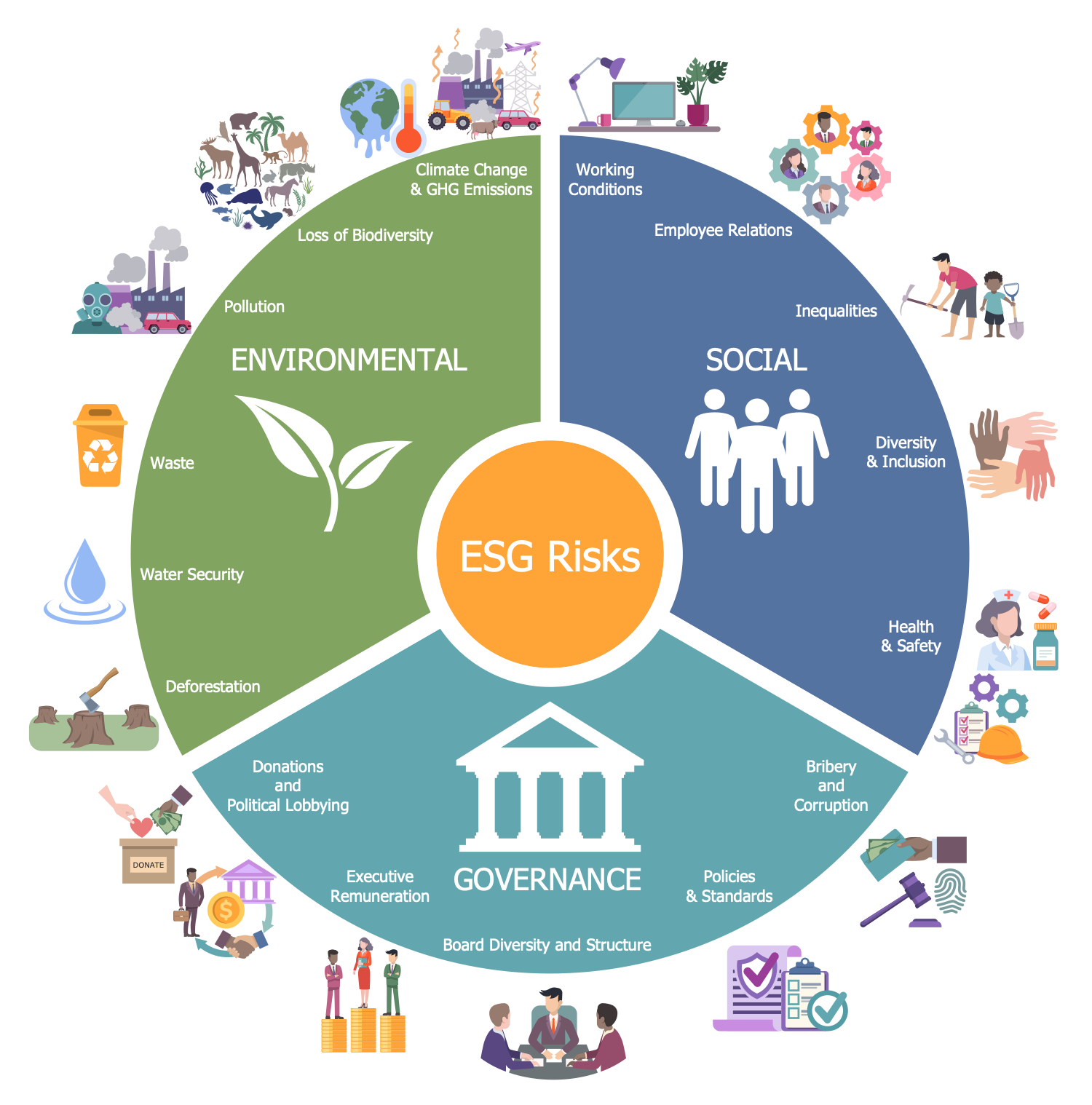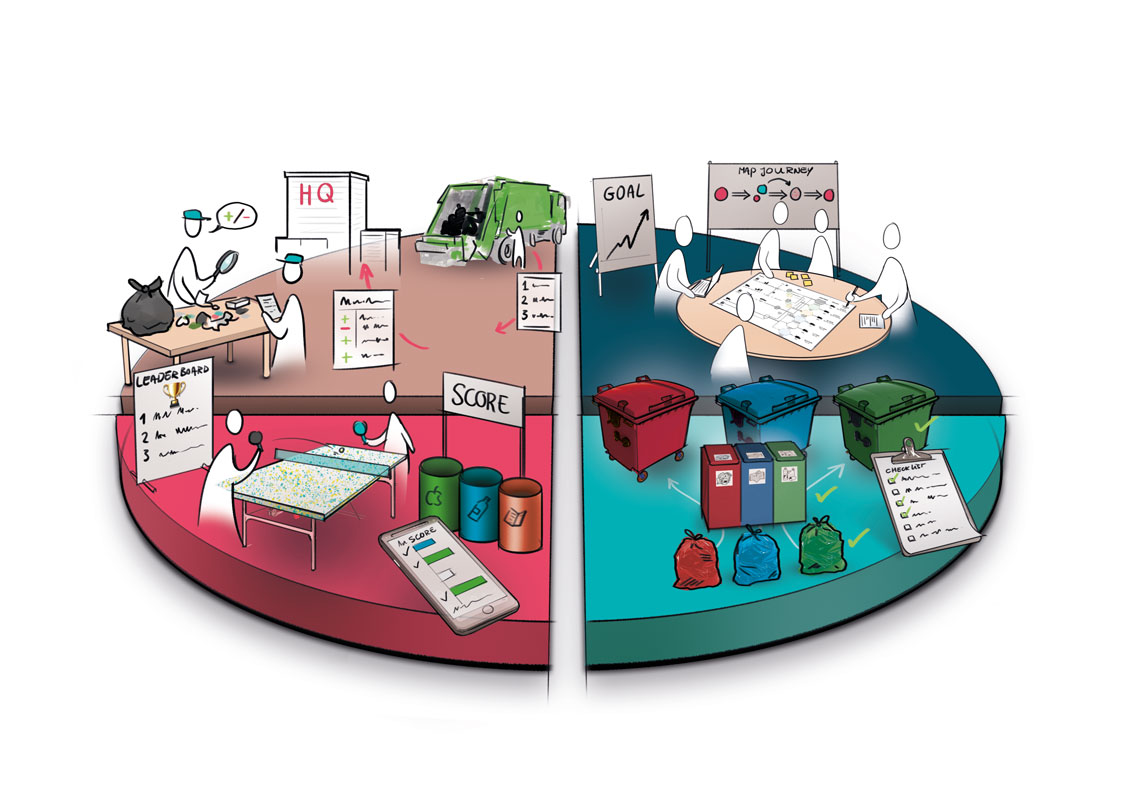How to Transform Sustainability Strategies into Tangible Actions
In a world facing unparalleled challenges, sustainability strategies have transitioned from a peripheral consideration to a vital component of corporate strategy. With an increasing number of organisations having sustainability strategies, it’s evident that, much like digital transformation, for businesses to stay relevant and competitive, being a sustainable business is no longer optional—it’s essential.
This development underscores responsible and future-focused decision-making, ensuring that organisations prosper now and remain prepared for the coming years. The importance of transforming these strategies into tangible actions throughout the supply chain and entire business spectrum can’t be overstated. But how do we transform these strategies into actionable sustainability? This article explores how and why sustainability has become such a pivotal part of developing corporate strategy and the steps businesses can take to turn these strategies into action.
A Sustainability Strategy is More Than Just a Trend
Embracing sustainability is essential for today’s businesses, as laid out in this article by World Economic Forum. Simply seeing it as a passing trend is a misstep. A sustainable business strategy blends economic, environmental, and social aspects into an organisation’s core operations. The growing significance of sustainability for corporations, emphasises alignment with Environmental, Social, and Governance (ESG) principles:
1. Environmental Responsibility
This goes beyond superficial efforts, it means substantial actions like cutting carbon emissions and promoting renewable energy.
2. Social Commitment
Businesses must uphold ethical standards and contribute positively to societal well-being.
3. Governance Requirements
Strong governance hinges on transparency and ethics. This means acknowledging successes while also identifying areas that need improvement. In this realm, the Corporate Sustainability Reporting Directive (CSRD) plays a crucial role. It modernises sustainability reporting, and ensures that stakeholders have access to the information necessary for assessing a company’s sustainability performance. Companies affected by the CSRD will need to comply with the European Sustainability Reporting Standards (ESRS) from the 2024 financial year onwards.

The ESG principle framework. Source: ConceptDraw.
It’s worth noting that, as an example, most major global companies, including some managed by the largest asset manager, such as BlackRock, now release sustainability reports and set eco-friendly goals. There is a growing consensus among executives that a strong sustainability strategy can lead to enhanced productivity and, consequently, sustainable profits.
What is Driving Sustainability Strategies?

Strategy brainstorm. Source: Better Future Factory.
In the modern era, it is becoming increasingly important for organisations to incorporate sustainability strategies into their business models. It’s not just a moral imperative but also a strategic necessity in today’s interconnected global economy. Here are some of the key drivers that are prompting organisations to adopt and prioritise sustainability:
1. Consumer Behaviour
Informed consumers increasingly favor brands that prioritize ethical and sustainable practices.
2. Global Regulations
International policies, from the EU’s emission goals to Asia’s waste initiatives, are pushing companies toward sustainable operations.
3. Resource Constraints
The scarcity and rising cost of resources emphasize the need for efficient, sustainable sourcing and usage.
4. Attract and Retain Talent
Many employees, especially millennials and Gen Z, want to work for companies that prioritise sustainability. Having tangible sustainability actions can make a company a more attractive employer.
How Do you Implement Actionable Sustainability?
The integration of sustainability strategies into business practices isn’t limited to operations and corporate governance. It directly influences the very products or services a business offers. For companies striving for sustainability, it’s essential to understand what this means for product development and how to incorporate these principles effectively.
When sustainability becomes a core tenet of a company, it shapes the entire life cycle of a product – from design to disposal. Products should not only fulfil the needs of consumers but should also be designed, produced, used, and disposed of in an environmentally friendly and socially responsible manner. Steps to Implement Sustainability in Product Development:
1. Design Thoughtfully: Develop products with longevity and reparability in mind, utilizing sustainable materials and ensuring that the design process closes loops, facilitating both repair and reuse to promote a more sustainable, circular economy.
2. Assess Life Cycle: Evaluate the environmental footprint from inception to disposal, targeting areas with the highest impact.
3. Choose Ethical Suppliers: Collaborate with suppliers committed to ethical and sustainable practices, companies such as B Corp offer guidance during this process.
4. Maximize Resource Efficiency: Minimise waste, while also transforming waste into a valuable resource and harnessing renewable energy for production processes, aiming for maximal efficiency while closing loops to foster a sustainable, circular economy.
5. Prioritize Sustainable Packaging: Aim for minimal, recyclable, or compostable packaging.
6. Communicate Transparently: Highlight the product’s sustainable features, using certifications or eco-labels to foster trust.
7. Commit to Evolution: Continuously adapt to integrate the latest sustainable technologies and practices.
The Long-term Benefits of Actionable Sustainability
When an organisation transforms its sustainability strategy into concrete actions, it positions itself for long-term success, such as:
1. Strengthen Brand Reputation
Companies that actively pursue sustainability are viewed more favourably by consumers, leading to increased trust and brand loyalty, accoring to the following report by McKinsey.
2. Reduce Operational Costs
Implementing sustainable practices can result in cost savings in areas like energy consumption, waste management, and supply chain management.
3. Drive Innovation
Sustainability challenges push companies to think outside the box, leading to innovative solutions that can differentiate them from competitors.

Innovative collaboration with ELHO, plant pots made from Amsterdam canal waste. Source: Better Future Factory.
Sustainability Strategy in Practise for INGKA Centres

INGKA plastic strategy. Source: Better Future Factory.
INGKA Centres, a division of the IKEA Group, owns approximately 50 shopping centers globally, hosting renowned tenants such as H&M and Zara. The company is deeply committed to IKEA’s robust sustainability objectives, particularly in the realm of plastic use and disposal. We have collaborated with INGKA to examine the flow of plastics into and out of their facilities. Our collective efforts have resulted in the formulation of a comprehensive strategy aimed at enhancing the sustainability of plastic usage across their shopping centers worldwide.
To develop a globally applicable strategy, we conducted thorough analyses of meeting places in Asia, Russia, and Europe. Our focus was on identifying commonalities and examining the existing plastic waste ecosystems in these regions. We evaluated not only the communal spaces within the malls frequented by visitors but also the environments of the tenants, waste contractors, and cleaning contractors operating within the premises.
Our comprehensive analysis encompassed various factors including the types of plastics used, their volumes, consistency, contamination levels, and shapes. This rigorous examination allowed us to craft a detailed guidebook. This resource is designed to foster the development of new business cases tailored for the unique streams of plastic, and it serves as a tool to engage diverse stakeholders in implementing a cohesive and sustainable strategy. The inclusive approach ensures collective participation and commitment to sustainability initiatives, promoting enhanced environmental responsibility. For more information, visit the project page or feel free to contact us.
Looking to the Future
As we transition into a new era where responsibility and accountability take centre stage, the narrative of business is undergoing a profound transformation. Adopting sustainability strategies has become imperative, central to our efforts at Better Future Factory, where we are committed to transforming the role of plastics in society. We offer actionable strategies, moving beyond reports to tangible implementation, ensuring that plastics contribute positively to our sustainable future. By adopting a holistic approach and considering the broader impact of our activities, we aim to leave a legacy of responsibility, with sustainability as our guiding compass toward a more responsible horizon. If you find yourself grappling with a plastic-related challenge, don’t hesitate to reach out. Let’s connect and explore how we can turn that issue into an opportunity for actionable sustainability together.
